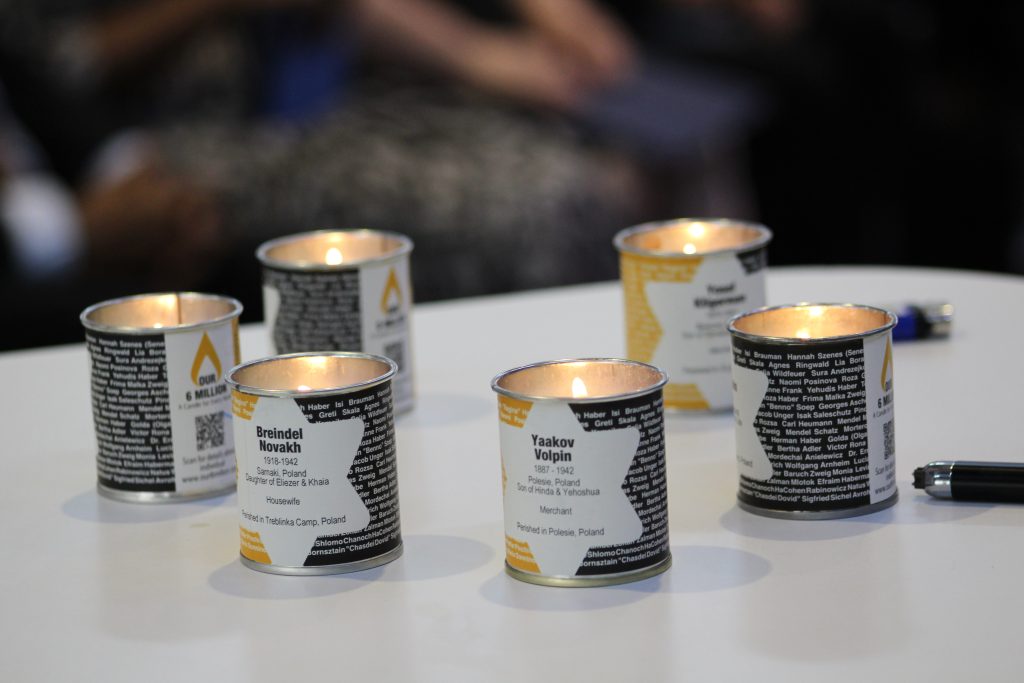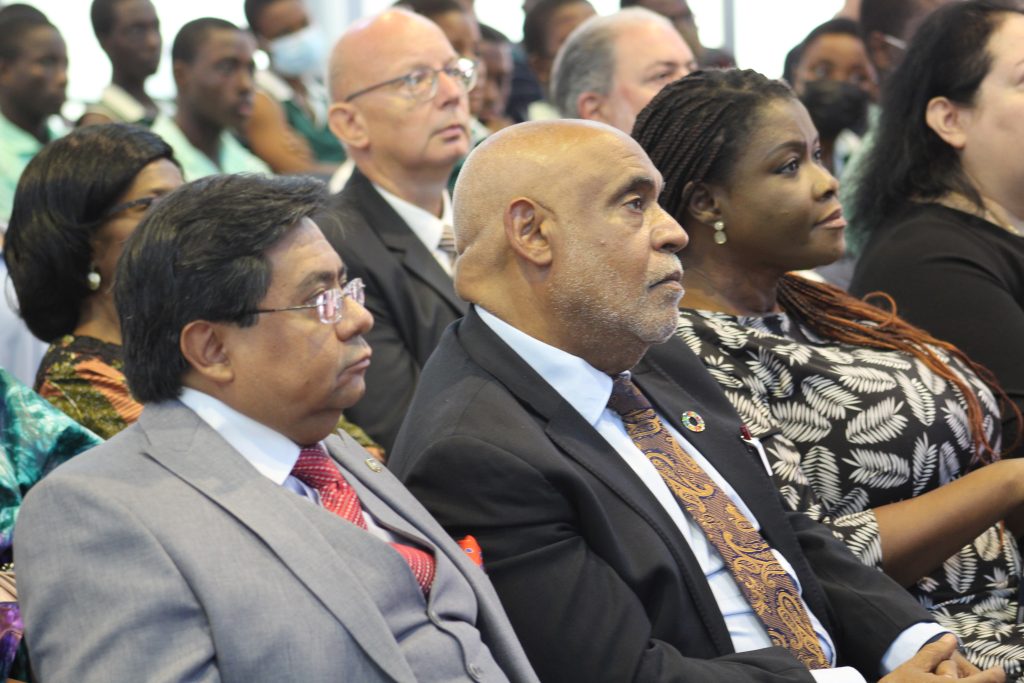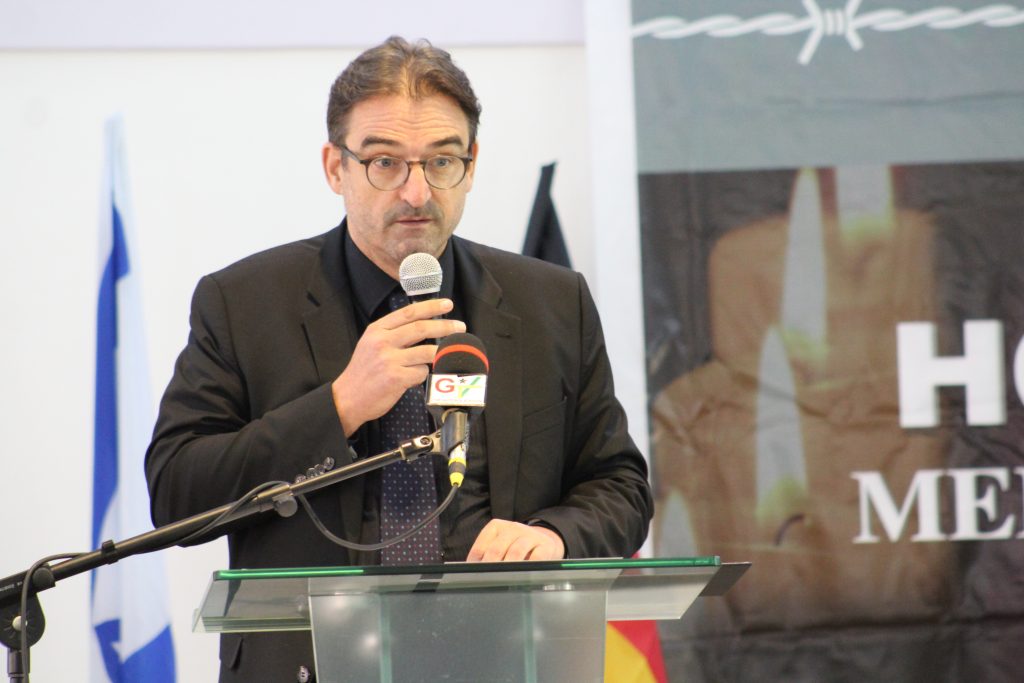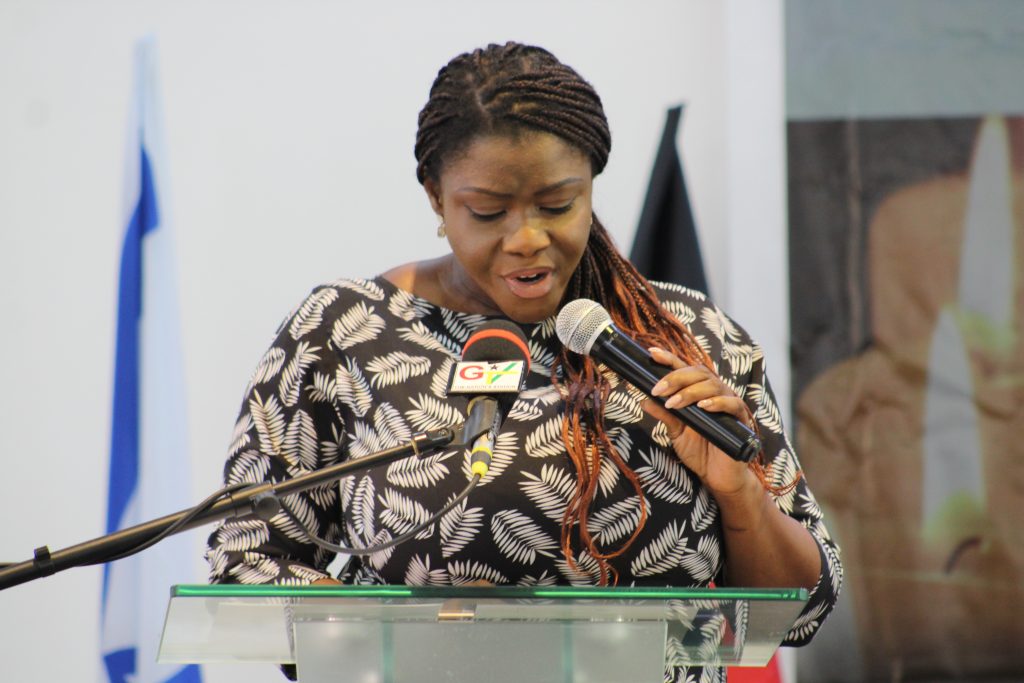By James Amoh Junior
Accra, Jan. 31, GNA – Madam Shlomit Sufa, Israeli Ambassador to Ghana, Liberia and Sierra Leone, has called for collective and continuous work of humanity to ensure that “human hatred towards others because of their religion, colour or race is never tolerated or accepted”.
“When we see our fellow human beings in any kind of suffering, we must never look away. This is deeply expressed in the principle of unity in diversity,” she said in an address to commemorate International Holocaust Remembrance Day in Accra on Tuesday.
The Remembrance Day, on the international theme: “Home and belonging”, explores how victims of the Holocaust adjusted their ideas of “home” and “belonging” as they faced the violent, anti-Semitic onslaught.
As part of the commemoration, guests, including the diplomatic corps, students were given the opportunity of viewing a film titled: “Where is Anne Frank” – a story of a survivor who presents a symbol of resilience and tolerance.
A Jewish prayer and candle lighting for those who died was performed by Rabi Noach Majeski

On January 27 each year, the United Nations remembers the Holocaust that affected many people of Jewish origin during World War II.
The Day is called the International Day of Commemoration in memory of the victims of Holocaust, because it was a turning point in history, prompting the world to say, “never again”.
The Holocaust, or Shoah is the term used to describe the deliberate murder and desecration of millions of people prior to and during World War II in Germany and German occupied areas in Europe.
The Israeli Ambassador to Ghana questioned what “home and belonging” meant to humanity, calling for a sober reflection and a collective resolve to live in tolerance and peace with others “in a world where hatred, hate speech, and genocide are rampant”.

She reminded humanity of its responsibility to stand against inhumane crimes, hate speech, antisemitism, Holocaust distortion, denial, and prejudice, and said there was a need to take action to stand for peace and tolerance in communities and schools.
“It is important for all of us to remember the past in order to preserve the future,” Madam Sufa stated.
Mr Daniel Krull, German Ambassador to Ghana, in a speech read earlier in commemoration of the Holocaust by the President of the German Parliament House, Mrs Barbel Bas, said “we have to firmly reject any attempt to question or relativize the singularity of the Shoah”.

The Ambassador quoted the President of the German Parliament as saying: “On the average, five anti-Semite crimes are reported a day in Germany. Jewish Institutions and Synagogues are being attacked; people are threatened and attacked, just because they are Jewish. It’s a shame for our country. ”
Those numbers, Mr Krull said, made it clear that the “never again” mantra had unfortunately not lost its relevance and that there was the need to stay ever vigilant and prepared to speak up.
“Let us remain vigilant. Let us stand together against any type of systematic, state-sponsored disenfranchisement, persecution and murder of entire groups determined by heredity,” the German Ambassador said.
Madan Kathleen Addy, Chairperson, National Commission for Civic Education (NCCE), reiterated the need for humanity to carry in its hearts a rekindled flame of responsibility towards one another and ensure that the years ahead were devoid of the semblance of the Holocaust.
She said the commemoration called for a sober moment of reflection but most importantly the urgent need for the protection of human rights as enshrined in the universal declaration of human rights.

“May the lessons we have learnt in the dark past empower us to create warm and hospitable nations in order that every human being will indeed feel at home with a sense of belonging,” she assured.
Present at the remembrance ceremony were Mr Charles Abani, UN Resident Coordinator and Mr Abdourahamane Diallo, UNESCO Representative in Ghana, among other dignitaries.
GNA